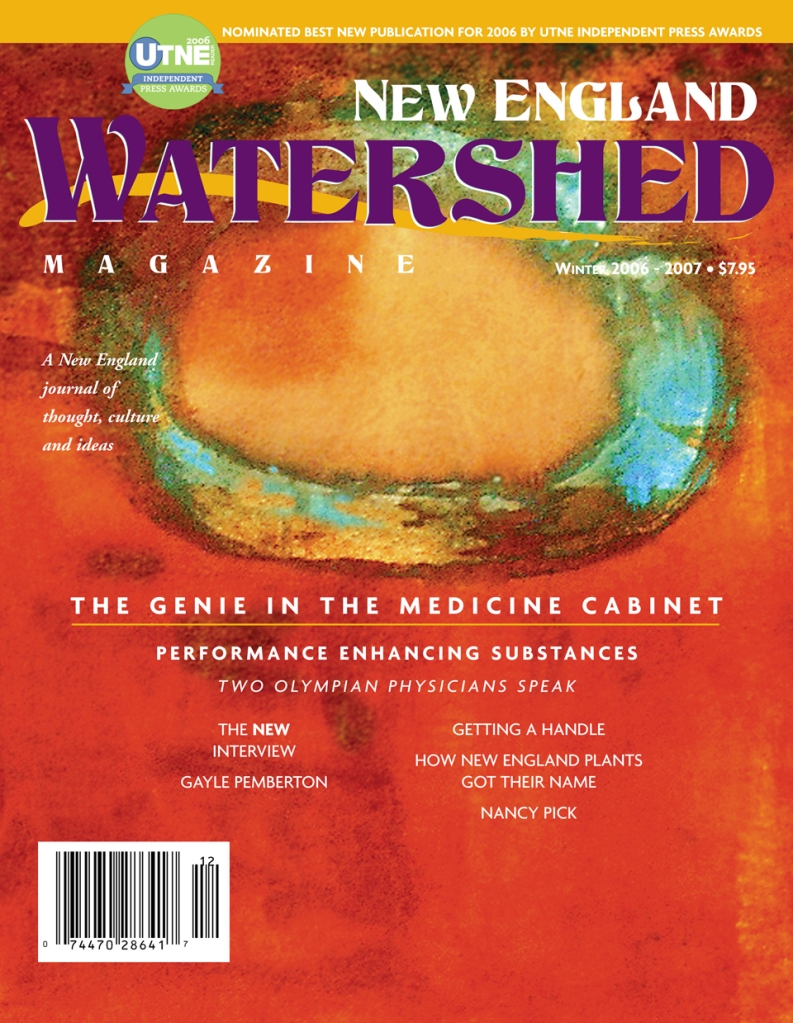How our athletes fail us
BY RUSSELL POWELL
FIRST, FULL DISCLOSURE: I am writing this on caffeine. I have already had three cups of coffee, and it is only eight a.m. Most days, that is my limit, but I confess that sometimes I drink more. I like the flavor. I enjoy the routine. And caffeine gives me a buzz–especially on those days when I have had too little sleep or am staring at a deadline.
I am also an amateur athlete. During the 2001 New York City Marathon, my legs cramped so badly that I stopped at a medical tent around mile 22. I took a brief rest and some Advil, and kept going. The pain persisted but I managed to finish, long after the goal I had set. I’ve never been tempted by steroids, but occasionally I wonder how it must feel to run 26 consecutive miles at a five-minute pace, as the winners do, when I would struggle mightily to run one mile at that speed. More often, I wonder how my marathon would have felt cramp-free.
In a world of ibuprofen and caffeine, Prozac and Ritalin, Viagra, Botox and Letrozole, our inconsistencies about athletes’ use of performance-enhancing drugs are notable. Many of the same people who complain about Barry Bonds’ alleged use of steroids flock to Major League Baseball games. We abhor the cheater — especially if he or she plays for the other team (or nation).
But where do we draw the line between human aspiration, between medical and technological progress, and unfair advantage? Are the children of parents who took fertility treatments somehow less valid? Should we reject a drug that might give us the insight to cure cancer because the solution would be artificially aided? Should we not push the boundaries of human experience to ever-greater accomplishments? As a species, could we curb our native curiosity, our desire to explore the unknown, even if we wanted to?
In sport, the playing field has never been level, especially when comparing one generation to the next. Fifty years ago, Lance Armstrong probably would have succumbed to testicular cancer before he ever made it to the starting line of the Tour de France. Nor could the Lance Armstrong of 50 years ago have competed against today’s lighter, faster bikes. Perhaps there are Lance Armstrongs in the world today who will never achieve their potential because they lack proper training facilities, professional coaching, an adequate diet or state-of-the-art medical care.
It’s the same in other sports. Baseball players did not take steroids in the 1920s, true. They also did not have to crisscross the country (they traveled by train, and there were no Major League teams west of the Mississippi), cope with demanding and invasive media, or play as many games. They had fewer teams, different parks, a heavier ball. They also had amphetamines and other drugs to help juice up their stats, decades before the advent of steroids.
So why does the steroid issue make people so emotional compared to other drugs? It’s the male hormone factor, for one thing, which feeds into our fears of the darker side of masculinity, such as a tendency toward violence and sexual aggression. It’s about performance, athletic and sexual, and the worry that steroid use could become compulsory. It threatens our grasp of reality in its most basic form: our bodies — our very selves — can be altered in ways that allow us to do things we were not physically born to do.
The emerging challenges to our human identity posed by scientific and medical breakthroughs play out on the very public, seemingly innocuous, athletic stage. Our concern about athletes using steroids reflects our uneasiness about the implications of hormone replacements, cloning and stem cell research. We want to stay healthy and live longer, but we worry that to do so, we have entered a Faustian bargain in which we must give up something fundamental to our nature– including our perception of what it means to be human.
The prevalence of performance-enhancing substances in our daily lives has become as unremarkable as e-mail and cell phones. For us consumers, life gets better, with more choices, every day. Its pharmacological basis is mostly hidden in our medicine cabinets, lurking in our latte, rarely recognized or acknowledged. With their condensed careers and millions of dollars at stake, professional athletes, on the other hand, are publicly pushing our boundaries on drug use, forcing the rest of us to consider the ethical questions of what is acceptable and what is not, and why.
Athletes are supposed to inspire us, but in this case, they fail. They are as vulnerable and conflicted as the rest of us. We admire them as elite physical specimens, the human embodiment of our ideals. Those ideals are not merely physical, but also include fairness, discipline, courage, determination and hard work. When athletes subvert these, when they show us that mind and body alone are not good enough, when they dissemble about drugs for fear of suspension or rebuke, they are no better than us. And that’s not why we go to their games. We go to see world records smashed, to witness the towering home run.
Russell Powell is editor and publisher of New England Watershed.


